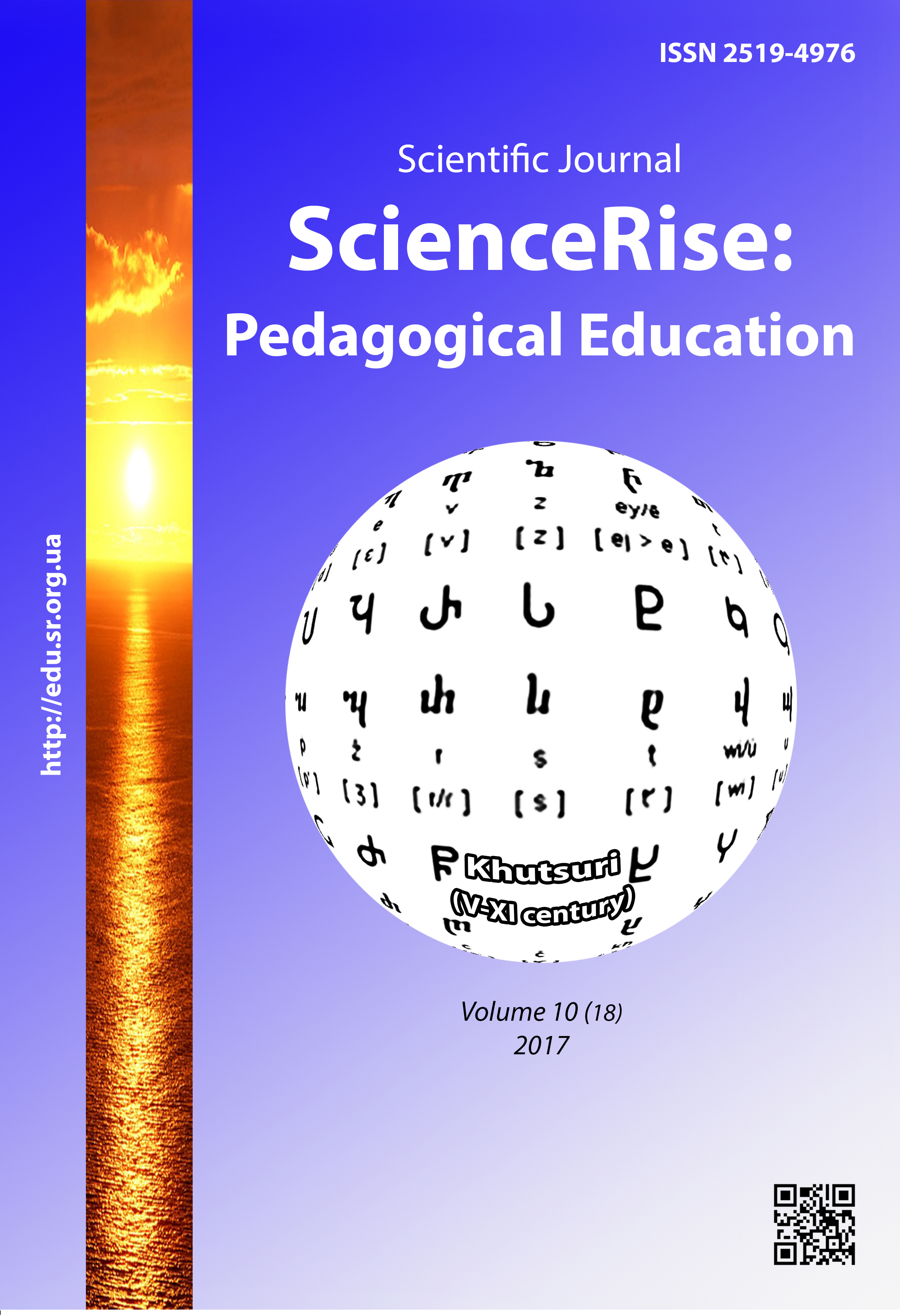Technology of management of the quality of training of future engineers-teachers under conditions of master course of technical university
DOI:
https://doi.org/10.15587/2519-4984.2017.113462Keywords:
management, quality, monitoring, training, engineer-teacher, master course, technology, experiment, systemAbstract
The article deals with the technology of the management of the quality of training of future engineers-teachers under conditions of the master course of the technical university. The essential advantage of indices of students from experimental groups is statisticaly important by criteria of formation of separate components of professional reflection and by this ability in whole. The qualitative analysis of obtained data gives a possibility to state that as a result of introduction of the management of the quality of training of future engineers-teachers under conditions of the master course of the technical university, essential changes in knowledge of its participants about aims and content of the process of managerial training, first of all, its psychological-pedagogical component take place. It is proved, that the dynamics of the results of the formation experiment confirms the initial hypothesis and proves the effectiveness of such management of means of psychological-pedagogical disciplines that givees their managerial training personal importance, consciousness, directionality on the continuous self development, both personal social and managerial one. The content and effectiveness of the technology of the management of the quality of training of future engineers-teachers under conditions of the master course of the technical university can be determined only in the process of the experimental work, because its formation presupposes introduction of purposeful and essential changes in the existing system of professional training. That is why the important object of our attention at this stage was the research formation. The elaboration of its method was realized taking into account the research task, according to which the proper level of the management of education quality can be achieved under condition of full mastering (knowledge – understanding – use) of all components of a phenomenon. The formation of professional competences of a future engineer-teacher must be realized on the base of: statements of system, activity, personal and integrative approaches; ideas of developing study; step-by-step realization of intellectual and pratical actions, pedagogical theory of a creative personality at learning-cognitive activity; principles of pedagogics and laws of production process
References
- Potashnyk, M. (Ed.) (2000). Quality Management Education. Moscow, 448.
- Subetto, A. Y. (2003). Noosferyzm. SPb .: gentlemen, 537.
- Tatour, A. (2012). Evaluation Quality of education and learning: trudniy Way Formation. Narodnoe obrazovanie, 4, 115–121.
- Chernyshev, E. (2012). Formation of human resources education system graduate teacher education, scientific and practical bases. State higher educational staff "University of management of education" National Academy of Pedagogical Sciences of Ukraine, 472.
- Bordovskyy, G. A. (2004). Quality Management obrazovatelnoho process in vuze. Values sovremennoho education, region. aspect, 178–180.
- Shishov, S. (2000). The professional competence of the teacher. Education and Management, 4 (2), 35–40.
- Ozhegov, S. I., Shvedova, N. Y. (1999). Explanatory dictionary: 80000 words and frazeolohycheskyh virazhenyy. 4th edition, Moscow: Azbukovnyk, 907.
- Moiseev, L. M., Kovalchuk, V. (2008). Basic scientific research. 5th edition. Kyiv: Professional, 240.
- Panasiuk, N. L. (2014). Role of national policy improving quality in higher education Ukraine. Computer-integrated technologies: education, science and industry, 15, 173–177.
- Law of Ukraine "On Higher Education" (2014). Supreme Council of Ukraine (BD), No. 37-38.
Downloads
Published
How to Cite
Issue
Section
License
Copyright (c) 2017 Natalia Chernyashchuk

This work is licensed under a Creative Commons Attribution 4.0 International License.
Our journal abides by the Creative Commons CC BY copyright rights and permissions for open access journals.
Authors, who are published in this journal, agree to the following conditions:
1. The authors reserve the right to authorship of the work and pass the first publication right of this work to the journal under the terms of a Creative Commons CC BY, which allows others to freely distribute the published research with the obligatory reference to the authors of the original work and the first publication of the work in this journal.
2. The authors have the right to conclude separate supplement agreements that relate to non-exclusive work distribution in the form in which it has been published by the journal (for example, to upload the work to the online storage of the journal or publish it as part of a monograph), provided that the reference to the first publication of the work in this journal is included.







